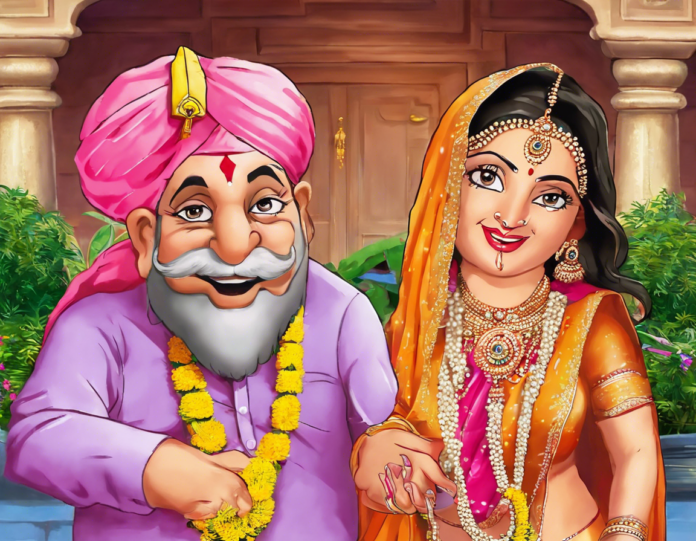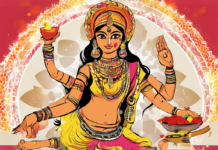When it comes to welcoming guests into our homes, it’s not just a social custom; it’s a way of extending warmth and hospitality. In India, guests are considered equivalent to the gods, and the act of welcoming them is rooted in ancient traditions and values. Among the many ways to welcome guests, the practice of “Ghar Mein Padharo Gajanand Ji” holds a special place in Indian culture. This phrase, which translates to “Welcome into our home, Lord Ganesha”, signifies a gesture of respect, love, and a belief in auspiciousness.
The Significance of “Ghar Mein Padharo Gajanand Ji”:
In Hindu mythology, Lord Ganesha is revered as the remover of obstacles and the god of beginnings. Before starting any auspicious work, Hindus often seek his blessings. Invoking Lord Ganesha’s name while welcoming guests is believed to bring good luck, positivity, and the removal of any hindrances that may come their way.
Elements of a Traditional Welcome:
-
Rangoli: It is a traditional art form where intricate patterns are created on the floor using colored powders, rice, or flower petals. Rangoli is believed to bring good luck and create a welcoming environment in the home.
-
Aarti: Lighting a lamp and waving it in front of the guests is a way of showing respect and warding off negative energies. Aarti is often accompanied by chants and hymns dedicated to Lord Ganesha.
-
Tilak: Applying a vermillion (kumkum) tilak on the forehead of guests is a symbol of blessings and protection. It is considered a mark of respect and honor.
-
Offerings: Offering sweets, fruits, or flowers to guests is a common practice in Indian households. It symbolizes hospitality and generosity.
How to Welcome Guests Using “Ghar Mein Padharo Gajanand Ji”:
-
Prepare: Clean and tidy up your home before the arrival of guests. A well-kept home reflects warmth and care.
-
Decorate: Adorn the entrance of your home with flowers, torans, or rangoli to create a festive and inviting ambiance.
-
Welcome: Greet your guests with a smile and fold hands in a namaste gesture. Say “Ghar Mein Padharo Gajanand Ji” or simply “Welcome” with warmth and sincerity.
-
Aarti and Tilak: Perform a small aarti for your guests with a lit lamp and apply a tilak on their forehead while chanting a prayer.
-
Offerings: Present your guests with sweets, fruits, or gifts as a token of your hospitality.
Frequently Asked Questions (FAQs):
- What is the significance of Lord Ganesha in Indian culture?
-
Lord Ganesha is revered as the remover of obstacles and the god of beginnings in Hindu mythology. He is worshipped before commencing any new endeavor.
-
Why is “Ghar Mein Padharo Gajanand Ji” a common phrase used to welcome guests?
-
Invoking Lord Ganesha’s name while welcoming guests is believed to bring good luck, positivity, and the removal of obstacles in their path.
-
What are some traditional elements used to welcome guests in Indian households?
-
Traditional elements include rangoli, aarti, tilak, and offering sweets or fruits to guests.
-
How can I create a welcoming environment in my home for guests?
-
Keep your home clean, decorate the entrance with flowers or rangoli, greet guests warmly, perform a small aarti, apply a tilak, and offer them refreshments.
-
Can “Ghar Mein Padharo Gajanand Ji” be used for any guest, regardless of their beliefs?
- Yes, the phrase can be used as a gesture of respect and hospitality for any guest, irrespective of their personal beliefs.
In conclusion, “Ghar Mein Padharo Gajanand Ji” is more than just a customary welcome. It is a reflection of our cultural values, beliefs, and the art of embracing guests with love and positivity. By incorporating this traditional practice into our modern lives, we not only honor our heritage but also spread warmth and happiness in our interactions with others. So, the next time you welcome someone into your home, remember to say, “Ghar Mein Padharo Gajanand Ji” and embrace them with open arms and a heart full of blessings.










